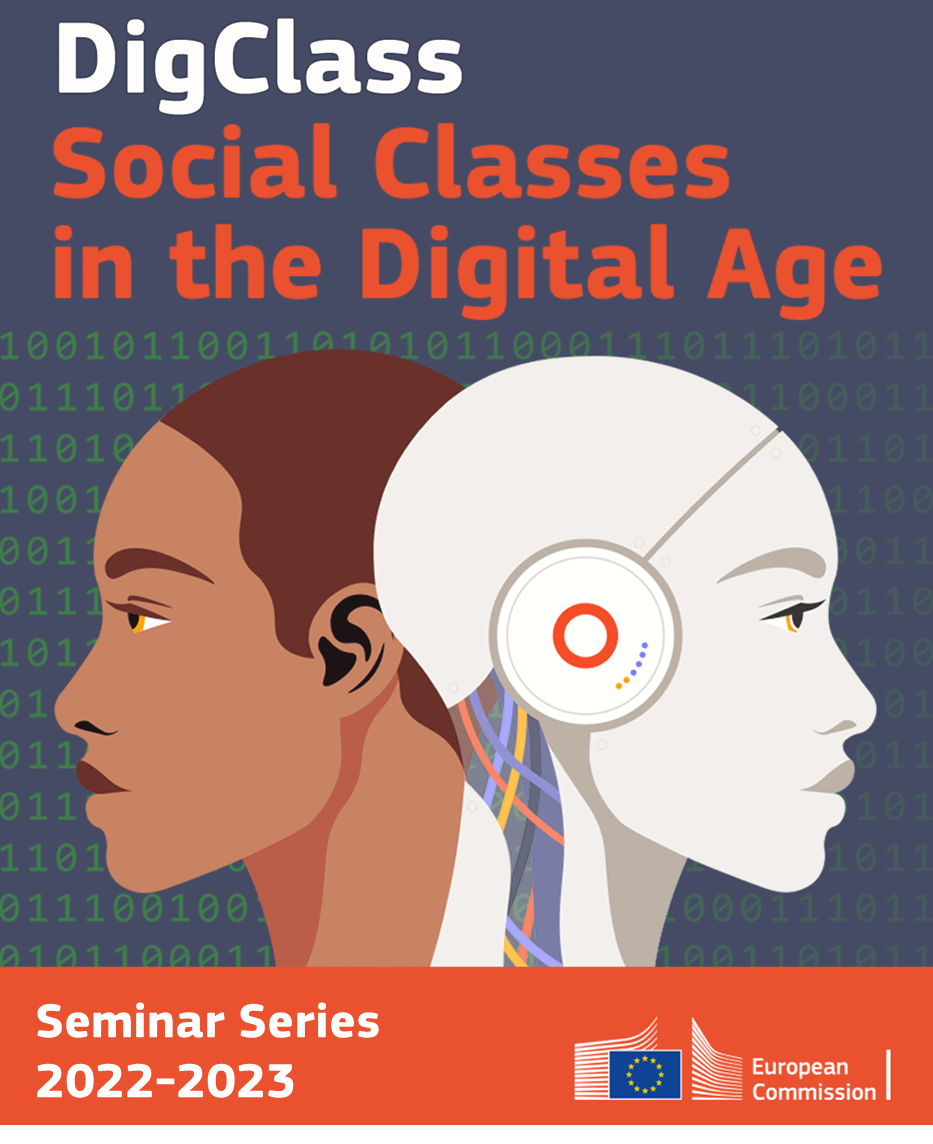- social policy | knowledge economy | integration of migrants | immigration | labour market | redistribution of income | politics | political ideology | retired person
- Tuesday 25 October 2022, 15:00 - 16:00 (CEST)
- Online only
- Live streaming available
Practical information
- When
- Tuesday 25 October 2022, 15:00 - 16:00 (CEST)
- Where
- Online only
- Languages
- English
- Organisers
- Joint Research Centre
- Website
- Link to the session
- Social media links
Description

Title
Inclusion or Segmentation - The Politics of Welfare Reform in 21st Century Western Europe
Abstract
Which social policies are the right ones to address the social and economic challenges that Western European societies are facing in the 21st century? These challenges are numerous and tremendous: increasing inequalities in incomes and opportunities accompany the rise of the knowledge economy; demographic ageing threatens the financial viability of old age pension systems, while at the same time, these systems seem to lose their ability to prevent old age poverty for everyone; and the massive political polarization over questions of immigration and integration raises the question of how to draw the boundaries of the community of solidarity that European welfare states have built over the 20th century. How can these challenges be addressed with the tools of social policy? How many resources can and should be spent on correcting market outcomes and equalizing incomes? Should the welfare state honour its promise of providing encompassing social security by shielding citizens from the risks and challenges of the early 21st century, or by helping them adapt to these new realities and by expanding the pool of solidarity to new risk groups?
The answers different citizens and political parties in Europe give to these questions differ dramatically. The book this talk presents studies political conflict over the provision of public welfare in the early 21st century, identifying structural and coalitional opportunities for reform across policy fields and regional contexts. Its main claim is that the question of inclusion vs. segmentation has become a key dividing line in the politics of welfare reform. Both voters and elites debate whether to expand the boundaries of welfare programs to address new social risks and prioritize future economic opportunities - inclusion - or whether to target expenditure in ways that prioritize the current community and its income security - segmentation.
The book studies how and with what consequences questions of inclusion vs. segmentation are politicized by citizens and by old and new political parties. It draws on large amounts of novel, newly and specifically collected data regarding the social policy positions and priorities of citizens and political parties. It shows that the question of inclusion vs. segmentation has become a fully fledged, divisive (partisan) conflict line in European welfare politics. The divide over inclusion vs. segmentation has the potential to divide both the political Right and the Left. However - in contrast to what the existing literature and public debates on the ailing and fragmenting Left would have us think - findings show that the divide is actually stronger on the political Right, while the Left turns out to be generally more unified in its stance for socially inclusive policies. The book presents key findings from over four years of empirical research in the context of the ERC-funded project "Welfarepriorities".
Speaker
Silja Häusermann is Professor of Political Science at the University of Zurich in Switzerland. She studies welfare state politics and party system change in advanced capitalist democracies. She directs the ERC-project “welfarepriorities” (www.welfarepriorities.eu) and is the co-director of the UZH University Research Priority Programme “Equality of Opportunity”. For further information on projects and publications, please see http://siljahaeusermann.org/
DIGCLASS Seminar Series
The DIGCLASS seminar series is expected to facilitate the exchange of cutting-edge ideas and debates related to social inequality, labour economics and political economy between JRC researchers and beyond by attracting external scholars, policy-makers and a general audience.
Visit the DIGCLASS website to check the full programme!
Drop us a line at JRC-CAS-DIGCLASS ec [dot] europa [dot] eu (JRC-CAS-DIGCLASS[at]ec[dot]europa[dot]eu) if you want to stay tuned with our seminar series and other activities.
ec [dot] europa [dot] eu (JRC-CAS-DIGCLASS[at]ec[dot]europa[dot]eu) if you want to stay tuned with our seminar series and other activities.
